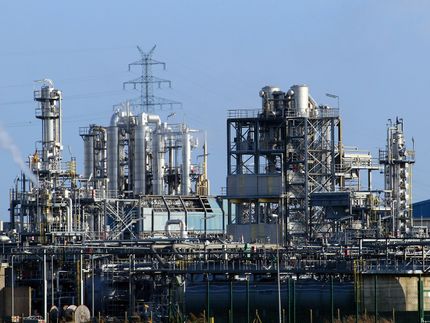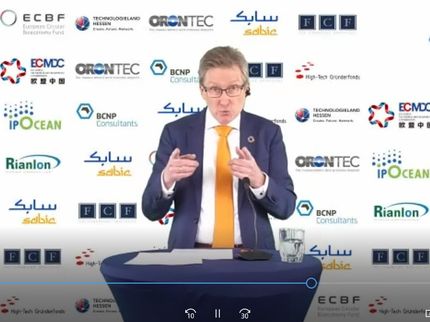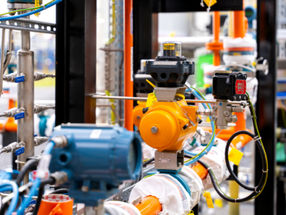Difficult year for the German chemical industry
Business developments 2015
Advertisement
There is light and shadow in the business developments 2015 of the German chemical-pharmaceutical industry. Production grew slightly, but sales stagnated due to once again falling producer prices. Overseas exports rose noticeably, especially because of the weaker euro to the US dollar. By contrast, the domestic demand for chemical products remained weak. Overall, production increased by 1 percent in 2015. However, excluding pharmaceuticals the volume business fell by 0.5 percent. Marijn Dekkers, President of the German chemical industry association VCI, stated: “Really strong impulses from the global economy were lacking for a better result.”
Dekkers said about the prospects for the coming year: “All in all, much speaks for somewhat brisker chemical business with customers at home and abroad.” In view of the economic stabilization of the home market Europe, the robust upward trend in the USA and the lasting demand in Asia, the VCI expects chemical production in Germany to grow also in 2016. But this trend forecast does not apply for all business sectors, so Dekkers: “In basic chemistry the favourable oil price reduces the production-cost disadvantage, as compared with the USA or the Middle East. All the same, companies have to cope with rising import pressure and competitiveness problems.” For the coming year 2016, the VCI assumes an increase in chemical production by 1.5 percent. At an unchanged price level, total sales should also rise by 1.5 percent to 193.6 billion euros, with main contributions coming from foreign business.
Data & facts from the annual developments 2015
Sales 2015:
With prices falling by 2.5 percent, total sales in the chemical-pharma-ceutical industry amounted to 190.8 billion euros and remained at the previous year’s level – irrespective of the minor increase in production volume.
Due to the price effect, domestic sales dropped by 1.5 percent to 74.6 billion euros.
VCI President Dekkers commented these figures for an industry which has a long tradition of strong exports: “Foreign business fulfilled our expectations only partly.” In comparison with 2014, foreign sales climbed by 1.0 percent to 116.2 billion euros. While sales to Western Europe (EU15) fell by 1.5 percent, the weaker euro to the US dollar stimulated overseas exports: Sales to NAFTA countries expanded vigorously (+13.0 percent), mainly with positive impulses from the pharma-ceuticals business. Sales to Asia (+5 percent) and Latin America (+3.5 percent) grew too.
Employment:
As compared with 2014, the number of jobs in the industry went up by 0.5 percent to currently 447,000 staff. The employment increase came to a halt in the 2nd half 2015.
Research and investment:
The research spending was at the level of the previous year. In 2015 the companies spent around 10.4 billion euros on research and development. Assessment by Dekkers: “Stagnation will not be enough to hold our own in global competition. Innovations are our strength, but we need to do a lot to keep it this way.” Here, Dekkers called for a venture capital act and for fiscal incentives for research as important political impulses. Chemical companies invested 7.2 billion euros (+1.0 percent) in fixed assets in Germany, so that there was hardly any increase over the previous year. Foreign investments by chemical companies rose to 8.6 billion euros (+2.0 percent) and thus to a new record high. The VCI President emphasized: “We see with concern these trends in our industry. In the long run, they will put at risk the performance ability of the entire value chains. We urgently need an industry policy initiative to clearly improve the investment climate in Germany – not only for chemistry but for industry as a whole.”
Climate policy:
A few days before the end of the climate protection conference in Paris, VCI director-general Utz Tillmann urged the participating states to bring about an agreement that includes the perspective for a global CO2 market. According to the VCI, such an agreement should comprise market mechanisms for emission cuts where they are possible in the most efficient way and at the most favourable cost. The VCI director-general stressed: “We need a global CO2 market which functions by the same market-based rules everywhere. This creates a steering effect for more climate protection, without artificial price increases through politics.”
Tillmann pointed out that no other system worldwide has such binding and ambitious climate protection requirements to industry like European emission trading. He called for a level playing field, so that climate protection measures do not permanently burden the industry in global competition. The situation is becoming even more critical: Irrespective of the outcome of the climate protection conference, the EU wants to further tighten emission trading from 2021 – in order to achieve its CO2 target of -40 percent for 2030. This means that the German chemical industry might be faced with extra costs of over 2 billion euros per annum.
So far, the chemical industry in Germany has a very successful climate balance: Since 1990 this industry has reduced its greenhouse gas emissions nearly by half while increasing production by 60 percent. Tillmann: “As we see things, we are moving together with society towards a low-emission future – with our efficient production plants and energy-saving products. We want to help reach the 2 degrees goal. But only a competitive and innovative chemical industry can develop the technologies that are needed in the fight against climate change.”































































